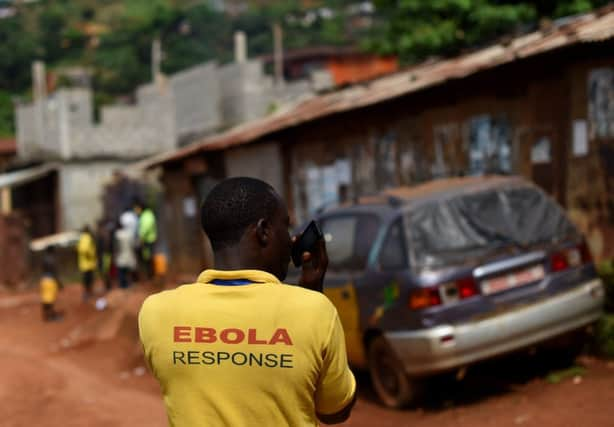WHO not fit for purpose over Ebola crisis


The epidemic, which broke out in Guinea in 2013, was not declared a public health emergency by WHO until August 2014 – which has been partly blamed for its rapid spread to neighbouring Sierra Leone and Liberia, resulting in more than 11,000 deaths.
WHO, which is part of the United Nations (UN), has a number of responsibilities, including identifying any emergencies or hazards that pose a threat to human health and coordinating the response. But according to the report, WHO “does not currently possess the capacity or organisational culture to deliver a full emergency public health response”.
Advertisement
Hide AdAdvertisement
Hide AdOther findings include a lack of a “culture of rapid decision-making”, with it tending to adopt a reactive rather than a proactive approach to emergencies. The report said it must make urgent “fundamental changes, particularly in terms of leadership and decision-making processes”, with the help of its 194 member states.
The report panel said it recommends the creation of a single, unified WHO Centre for Health Emergency Preparedness and Response, to be based on the currently separate outbreak and humanitarian areas of work.
Funding for emergency response was also found to be “lacking”, and the panel, which was headed by Dame Barbara Stocking – a former chief executive of Oxfam GB – recommended that further investments be made with “vigour”.
Rather than setting up a whole new agency for health emergencies as has been suggested by some, “it would be a far more effective and efficient use of resources to make WHO fit for purpose”, the report said.
Other criticisms include that “WHO does not have an organisational culture that supports open and critical dialogue between senior leaders and staff or that permits risk-taking or critical approaches to decision-making”.
“There seems to have been a hope that the crisis could be managed by good diplomacy rather than by scaling up emergency action,” it added.
It said WHO should have had a key role to play in the coordination of areas such as surveillance, “but it took a long time to get this started”, while in the early stages of the outbreak, discussions about vaccines and experimental therapies were “largely ad hoc”. The report also said if recommendations made by WHO in 2011 in response to the swine flu pandemic two years earlier been implemented, “the global community would have been in a far better position to face the Ebola crisis”.
Other agencies come in for criticism, with the report finding “the engagement of the wider humanitarian system came very late in the response”, and the panel was “surprised” many donors, governments, the UN and other organisations understood only either the health emergency or the humanitarian system.